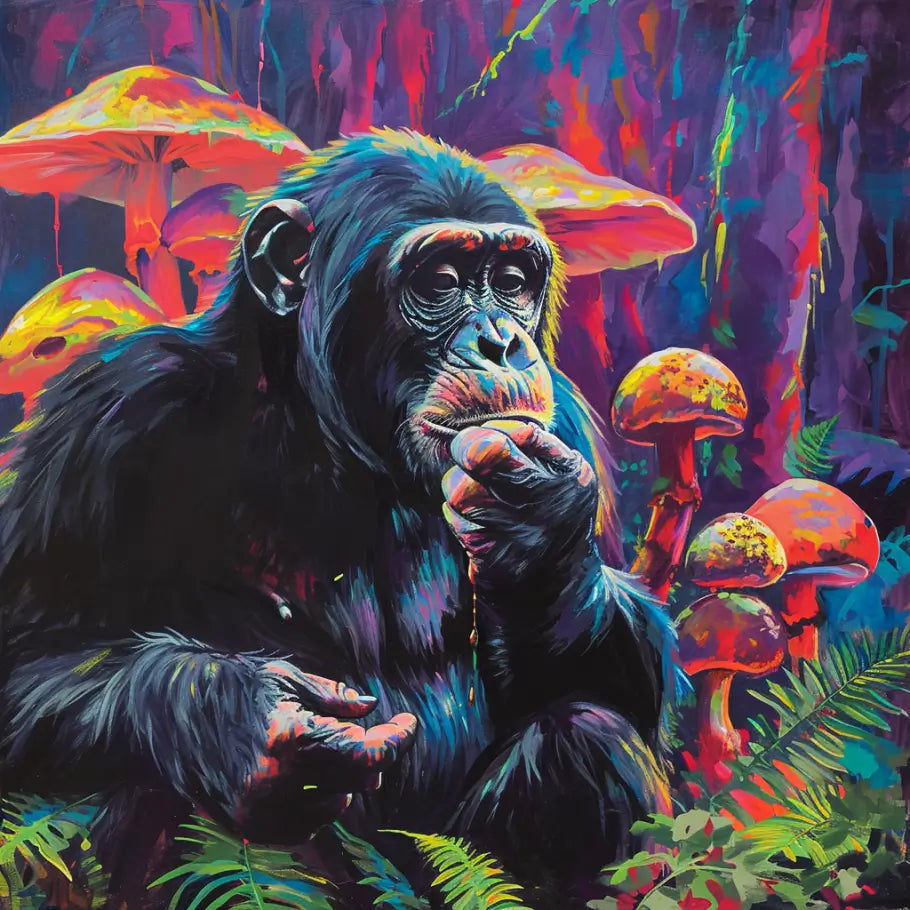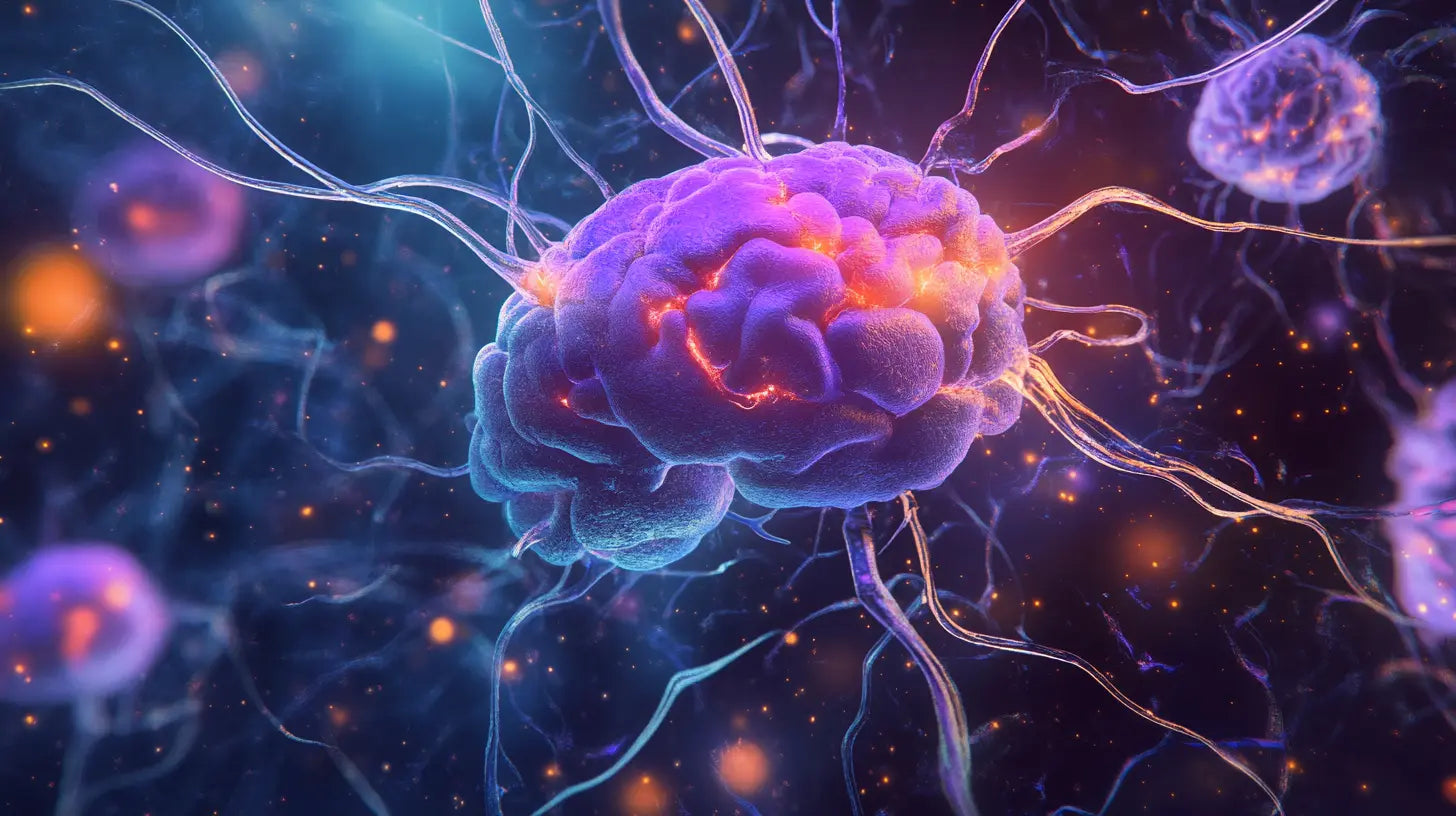
Unlocking the mysteries of the Stoned Ape Theory
The stoned ape theory, a controversial hypothesis, has captured the attention and imagination of many individuals throughout recent years. Proposed by ethnobotanist Terence McKenna in 1992, the theory postulates that the consumption of psychedelic mushrooms played a crucial role in the evolution of human consciousness. In this article, we will delve into the details of the stoned ape theory and discuss its potential implications for our understanding of human evolution.
A Brief Overview of the Stoned Ape Theory
At the core of the stoned ape theory is the idea that our early primate ancestors began consuming psilocybin-containing mushrooms while roaming the African savannah. According to McKenna's hypothesis, these primitive hominids inadvertently came across magic mushrooms when searching for food, being drawn to them due to their noticeable presence on animal dung. McKenna believed that as they started to incorporate these mushrooms into their diet, the effects of the psychoactive compounds in the fungi influenced their neurological and cognitive development, ultimately leading to the emergence of modern Homo sapiens.
Role of Psilocybin in Human Evolution
Psilocybin is known to cause dramatic shifts in perception, cognition, and emotion in those who consume it. Proponents of the stoned ape theory argue that these changes could have provided evolutionary advantages to early humans in several ways. Firstly, psilocybin has been suggested to enhance visual acuity, making it easier for early humans to spot predators and prey alike. Additionally, the ingestion of psilocybin could have led to increased creative thinking and problem-solving abilities, while also fostering a greater sense of empathy, community, and connection among group members.
Evidence Supporting the Stoned Ape Theory
Although the hypothesis has not gained mainstream scientific acceptance, some evidence may point in the direction of the stoned ape theory. For instance, studies have shown that psilocybin can stimulate neurogenesis, or the formation of new neural connections in the brain. Furthermore, recent studies on other animals, such as mice and zebrafish, have highlighted the potential for psychedelics to influence both neurological development and behavior in species.
Debates Surrounding the Stoned Ape Theory
To understand why the stoned ape theory has been met with skepticism, it is necessary to delve into the debates surrounding its validity and efficacy. Critics argue that there are inherent flaws in this hypothesis and that alternative explanations for human evolution deserve more attention.
Lack of Empirical Evidence Directly Linking Psilocybin and Evolution
One of the critical points leveled against the stoned ape theory is the lack of direct empirical evidence linking psilocybin consumption with human evolution. While recent research on the effects of psychedelics certainly sheds a light on their ability to modulate neural activity and even promote neuroplasticity, these findings alone do not necessarily provide conclusive support for McKenna's hypothesis.
Alternative Explanations for Human Evolution
Critics have also argued that alternative explanations might better account for key milestones in human evolution, such as our increased cognitive faculties. These alternative theories include the increasing complexity of social structures, the adaptation of tool use, and even significant changes in human diet, such as the adoption of cooking. Detractors contend that these factors might be equally—if not more—important than the proposed role of psychedelic mushrooms in shaping early Homo sapiens' development.
Applying the Stoned Ape Theory to Modern Times
One comment emerging from discussions regarding the stoned ape theory is its potential relevance to contemporary society. Specifically, some have posited that if psychedelic substances did indeed play a role in human evolution, it might hold implications for modern mental health research and our own understanding of consciousness.
Psychedelics as a Tool for Mental Health Treatment
In recent years, there has been a resurgence of interest in the therapeutic potential of psychedelics, including psilocybin, which has led to promising clinical trials exploring their use in treating conditions like depression, anxiety, and PTSD. Consequently, this line of research suggests that perhaps our ancestral relationship with psychoactive substances might offer novel avenues for exploring the human mind and addressing mental health concerns.
A Deeper Understanding of Consciousness
Another fascinating aspect of the stoned ape theory is what it might tell us about the nature of consciousness itself. If psychoactive substances like psilocybin played a significant role in the emergence of self-awareness and higher cognitive functions, studying these compounds could potentially provide further insights into the still-mysterious workings of our minds.
Looking Toward the Future of the Stoned Ape Theory
In conclusion, while the stoned ape theory remains controversial within the scientific community, it serves as a thought-provoking hypothesis that warrants further attention and exploration. Continuing to investigate the possible connections between psychedelics, neuroplasticity, and human evolution might not only help refine our understanding of the past but also pave the way for future innovations in fields such as mental health treatment and studies on consciousness at large.
0 comments
Disclaimer
The information in this article is for educational and informational purposes only. If this article discusses psychedelics, supplements, or wellness practices, it is not intended to promote, endorse, or encourage illegal activities or unverified health claims.
n0glitch does not sell or distribute psychedelic substances and does not provide medical, legal, or professional advice. Always consult a qualified healthcare provider before making health-related decisions.
Laws regarding psychedelics and supplements vary by country and region. Please research and comply with local regulations.












